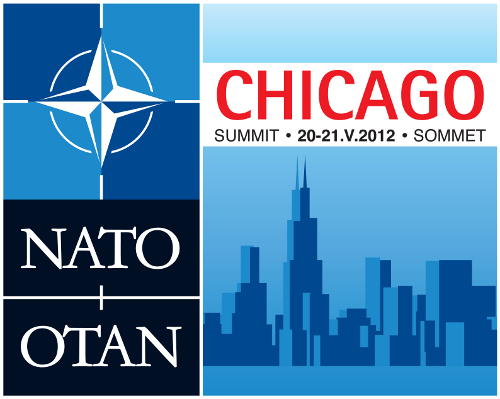
From R. Nicholas Burns and Damon Wilson, the New Atlanticist: Strong U.S. leadership of the alliance will be essential, just as it has been since NATO was formed in 1949. Obama is providing energetic leadership in NATO. But some in the United States regard Europe as a Cold War relic in the "Asian century." Such a view ignores — and indeed puts at risk — the very relationships America needs in order to remain the world’s leading power. The Atlantic alliance falters without U.S. leadership. As the United States pivots to Asia in the years ahead, it should do so with its European allies — not away from them. Congress must also avoid an additional $500 billion in defense cuts (beyond the $480 billion already agreed upon) that would risk weakening our armed forces and sow doubts among our allies about American leadership of NATO. Obama, as host, can use the summit to send a clear message of America’s commitment to and leadership in NATO.
European allies must also lead. France, the United Kingdom, Germany and Turkey must take the lead in sustaining Europe’s position as Washington’s go-to global partner. Each, in its own way, needs to demonstrate greater seriousness of purpose. Today, Germany is an economic powerhouse but a second-rate military power. Germany’s military weakness is NATO’s biggest problem. The alliance needs Germany, now reconciled with its history, to take on a more active leadership role and to raise its defense budget to share the burden that falls too much on the United States. France, under its new president, Francois Hollande, must ensure that the pro-NATO orientation of his predecessor, Nicolas Sarkozy, becomes an enduring element of French strategic culture. NATO cannot afford for Hollande to weaken pressure on Iran or withdraw French troops from Afghanistan this year with NATO committed to stay until 2014. Britain — still America’s most stalwart and capable ally — must ensure that its fiscal austerity program does not undercut its military’s global scope and Britain’s ambition to remain a first-rate power. Finally, Turkey — a NATO member since 1952 and a rising power in world affairs — must be offered the greater leadership role in NATO that it has long been denied. NATO members should consider a Turkish secretary general to lead the alliance within the next decade. At the same time, Turkey must end restrictions on journalists and find a way to resurrect its relationship with Israel.
The NATO summit will not solve all the challenges facing the alliance. But it can set the table for brighter prospects. With leadership from Obama and Europe, NATO can trade a dim and dismal future for continued strength and success.
R. Nicholas Burns, former U.S. ambassador to NATO, is professor of the practice of diplomacy and international politics at the Harvard Kennedy School and a board director of the Atlantic Council. Damon Wilson is executive vice president of the Atlantic Council. This article first appeared in The Chicago Tribune, and is part of a series of New Atlanticist pieces on NATO’s 2012 Chicago Summit.
Image: NATO-Chicago-Summit-Logo.jpg
